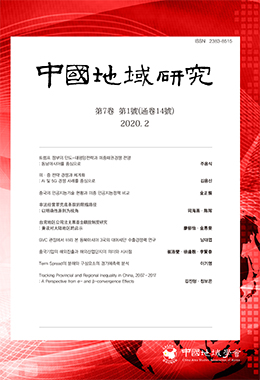2017년 11월 트럼프 대통령은 중국의 패권추구에 대응해서 ‘자유롭고 개방된 인도-태평양전략 (FOIP전략)’을 제시하였다. 본 논고는 FOIP전략을 미국방성 ‘인도-태평양전략’ 보고서와 미국부무 ‘인도-태평양 공유비전증진’ 보고서를 중심으로 분석한다. FOIP전략은 공화자유주의 시각인 선악 양분론의 관점에서 미국은 자유주의적, 중국은 억압적 세계관을 추구하고 있다고 규정하고, 중국을 자유주의 질서에 도전하고 서태평양지역, 특히 남중국해를 비롯한 동남아지역을 중심으로 지역패권을 장악하려고 하는 최대위협 요인으로 정의하고 있다. FOIP전략은 동남아 역내국가들과 동맹 및 준동맹관계 강화, 전략적 파트너십확립, 지속적 개입으로 양자관계를 강화하면서 아세안지역협력체와의 다자네트워크를 구축하여 중국의 패권야망을 봉쇄, 좌절시키는데 그 목적을 두고 있다. 그렇지만 동남아 역내국가들의 FOIP전략에 대한 수용성은 그리 높지 않다. 동남아 역내국가들이 미중 패권경쟁에 대하여 지역차원에서는 제도균형을 취하면서, 국익과 리더의 정치적 이해관계에 따라 균형, 편승, 헤징의 전략을 유연하게 구사해온 점을 고려할 때, FOIP전략은 미국적 가치를 추구하는 예외주의 보다는 전략적 차원에서 접근하는 편이 실효성을 더 거둘 수 있다.
The Trump administration has responded to the Chinese pursuit of a hegemony with the “Free, Open Indo-Pacific Strategy (FOIP strategy).” This paper analyzes its intentions and implementation measures by examining the two government documents of ‘Indo-Pacific Strategy Report: Preparedness, Partnership and Promoting a Networked Region,’ and ‘Indo-Pacific: Advancing a Shared Vision. ’ Reflecting the republican liberal dichotomous perspective of good and evil, the FOIP strategy views US as pursuing a free vision and China as doing a repressive one of the world. It identifies China as the greatest threat to US, challenging the liberal international order and trying to capture a hegemony in the Western Pacific areas, particularly Southeast Asia. The FOIP strategy purports to contain and frustrate the Chinese hegemonic pursuit in the Indo-Pacific region by strengthening a alliance or semi-alliance relationship, establishing a strategic partnership or continuing engagement with the countries in the region. However, most of the Southeast Asian states are skeptical of the FOIP strategy. Considering the regional states’ strategies towards the US-China rivalry, including the regional institutional balancing against it and the flexible bilateral responses to it, such as balancing, bandwagoning and hedging, to promote national or leaders’ political interests, the effective FOIP strategy should take on a pragmatic and strategic rather than a value-laden exceptionalist approach.


